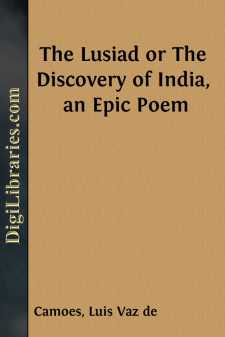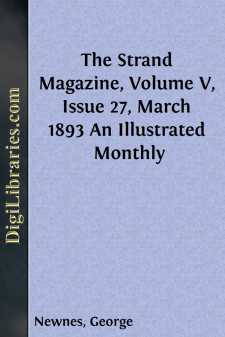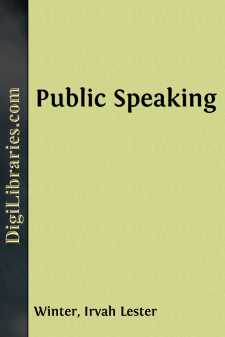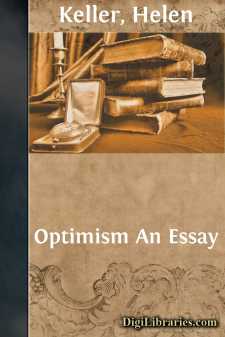Fiction
- Action & Adventure 180
- Biographical 15
- Christian 59
- Classics
- Coming of Age 5
- Contemporary Women 3
- Erotica 8
- Espionage/Intrigue 12
- Fairy Tales, Folklore & Mythology 236
- Family Life 169
- Fantasy 117
- Gay 1
- General 596
- Ghost 32
- Historical 808
- Horror 43
- Humorous 160
- Jewish 25
- Legal 4
- Medical 22
- Mystery & Detective 315
- Political 49
- Psychological 41
- Religious 64
- Romance 159
- Sagas 11
- Science Fiction 730
- Sea Stories 113
- Short Stories (single author) 537
- Sports 10
- Suspense 1
- Technological 8
- Thrillers 2
- Urban Life 31
- Visionary & Metaphysical 1
- War & Military 173
- Westerns 199
Classics Books
Sort by:
by:
Archibald Forbes
MATRIMONY UNDER FIRE The interval between the declaration of the Franco-German war of 1870-71, and the "military promenade," at which the poor Prince Imperial received his "baptism of fire," was a pleasant, lazy time at Saarbrücken; to which pretty frontier town I had early betaken myself, in the anticipation, which proved well founded, that the tide of war would flow that way first....
more...
THE SILENT ISLE I The Silent Isle, I name it; and yet in no land in which I have ever lived is there so little sight and sound of water as here. It oozes from field to drain, it trickles from drain to ditch, it falls from ditch to dyke, and then moves silently to the great seaward sluice; it is not a living thing in the landscape, bright and vivacious, but rather something secret and still, drawn...
more...
It is only when a building entirely fulfils the purpose for which it is intended and bears the impress of a genuine style that it takes rank as a work of architecture. This definition, exclusive though it at first sight appears, brings within the province of the art every structure which combines with practical utility beauty of design and execution, from the humblest cottage to the most dignified...
more...
by:
Edward Dyson
CHAPTER I. DR. CRIPS'S HEALING MIXTURE. HIS Christian name was Nicholas but his familiars called him Nickie the Kid. The title did not imply that Nicholas possessed the artless gaiety, the nimbleness, or any of the simple virtues of the young of the common goat. Kid was short for "kidder," a term that as gone out recently in favour of "smoodger," and which implies a quality of...
more...
In undertaking, at the publishers' request, the function of editor of Mickle's Lusiad, I have compared the translation with the original, and, in some places, where another translation seemed preferable to, or more literal than, Mickle's, I have, in addition, given that rendering in a foot-note. Moreover, I have supplied the arguments to the several cantos, given a few more explanatory...
more...
by:
George Newnes
From the French. I. King Phillip II. was playing at chess in the Escurial Palace. His opponent was Ruy Lopez, a humble priest, but a chess player of great skill. Being the King's particular favourite, the great player was permitted to kneel upon a brocaded cushion, whilst the courtiers grouped about the King were forced to remain standing in constrained and painful attitudes. It was a magnificent...
more...
PREFACE This book is designed to set forth the main principles of effective platform delivery, and to provide a large body of material for student practice. The work laid out may be used to form a separate course of study, or a course of training running parallel with a course in debating or other original speaking. It has been prepared with a view also to that large number who want to speak, or have...
more...
by:
Anonymous
The Author of the Memoirs had so little to apprehend in his Reputation either at home or abroad from the feeble Efforts of Monsieur de Cross in his late trifling Invective, that had it not been for the repeated Instances of some Friends, who were unwilling to have such a wretched Scribler escape unpunished, he had never condescended to the severe penance of sitting an hour upon him. To their...
more...
by:
Helen Keller
Optimism Within ould we choose our environment, and were desire in human undertakings synonymous with endowment, all men would, I suppose, be optimists. Certainly most of us regard happiness as the proper end of all earthly enterprise. The will to be happy animates alike the philosopher, the prince and the chimney-sweep. No matter how dull, or how mean, or how wise a man is, he feels that happiness is...
more...
by:
Anatole France
I Jean Servien was born in a back-shop in the Rue Notre-Dame des Champs. His father was a bookbinder and worked for the Religious Houses. Jean was a little weakling child, and his mother nursed him at her breast as she sewed the books, sheet by sheet, with the curved needle of the trade. One day as she was crossing the shop, humming a song, in the words of which she found expression for the vague,...
more...









![An Answer to a Scurrilous Pamplet [1693]](https://digilibraries-com.s3.eu-central-1.amazonaws.com/covers/a4d8de6b-47b3-45ff-a4c2-077097eb6cdc.jpg)

